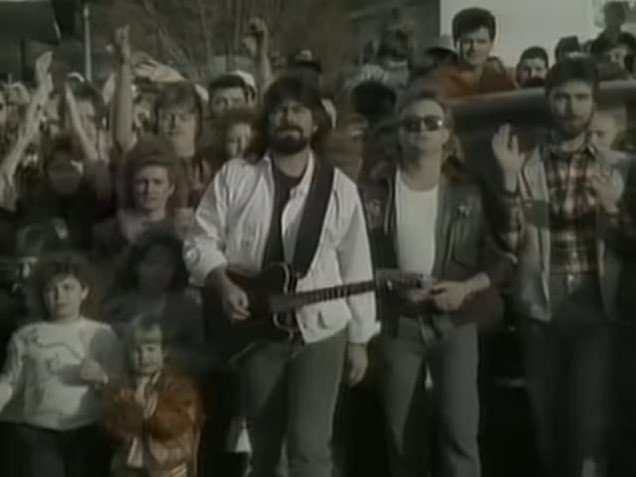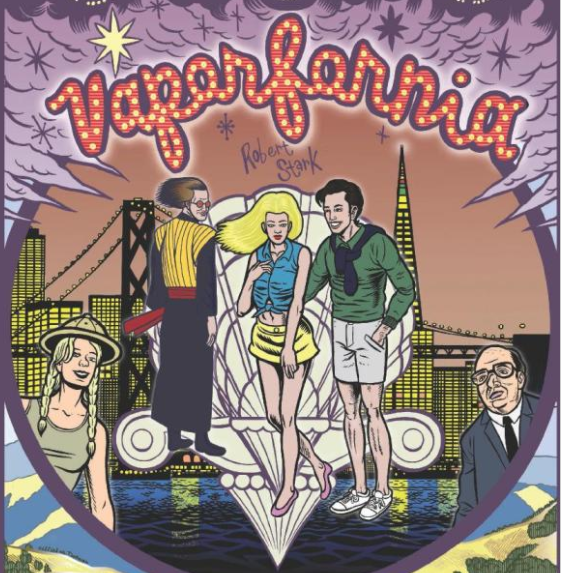Swan Song of the South
I grew up in a home where country was always the pop music
of preference, and one of the most memorable hits of those years was Alabama’s
1988 number-one charter “Song of the South”. Living in a large Midwestern
metropolitan area, the rustic subject matter was hardly intimately familiar to
me, but my father’s roots in the Missouri Ozarks, as well as our proximity to
irksome and criminal urban blacks, lent themselves to a vague and inarticulate
sympathy with the South. I never paid close attention to the words, but “Song
of the South”, particularly in the rousing, hand-clapping rendition by Alabama,
came across as an anthemic statement of Southern pride. I was unaware until
recently that the song had first been recorded in 1980 by Bobby Bare, in a
significantly more somber, subdued interpretation.
Wikipedia summarizes the content of “Song of the South” as follows:
The song tells the story of a poor
Southern cotton farm-family during the Great Depression. “Cotton
on the roadside, cotton in the ditch. We all picked the cotton but we never got
rich.” “Well, somebody told us Wall Street fell, but we was so poor
that we couldn’t tell.” The song references President Franklin D.
Roosevelt’s New Deal in the line, “The cotton was short and the weeds
was tall, but Mr. Roosevelt’s gonna save us all.” The father of the family is
a Southern Democrat; “Daddy was a veteran, a Southern Democrat. They
oughta get a rich man to vote like that.” The family loses the farm after the
mother becomes ill. “The county got the farm and they moved to town.” In the
end, the family ends up living comfortably well, having sought a life in a
more urban location; “Well, papa got a job with the TVA [i.e.,
the Tennessee Valley Authority], we bought a washing machine, and then a
Chevrolet.” [1]
Melton A. McLaurin, in his essay “Songs of the South: The Changing Image of the South in Country Music”, writes:
A number of other country artists
have paid tribute to the rural or small town South of their childhood, among
them Charlie Pride, Charlie Daniels, Tom T. Hall, and the Statler Brothers.
Each of these artists casts a nostalgic backward glance, while acknowledging
the poverty of the environment of their youth. Of all the songs of this genre
to make the top fifty charts, however, none takes a negative view of the region.
Only one relatively popular song […] looks back in anger. Written by Bob
McDill, one of Nashville’s best song writers, and recorded [in the first version
to become a hit] by Johnny Russell, “Song of the South” was released in 1981.
It describes the poverty, isolation and hard work endured by tenant families.
The song, one suspects, conveys McDill’s attitude toward what might be called
the Faulknerian South of the recent past, noting its demise and the fact that
nobody missed it. Yet McDill also authored another song, a hit for singer Don
Williams entitled “Good Ole Boys Like Me”. This song paints an ambivalent
portrait of the South. The region emerges as at once alluring, hauntingly
beautiful, and culturally stifling. Like much of McDill’s work, it is more
sophisticated than most country songs and reflects the ambivalence southern
intellectuals have traditionally felt about the region. [2]
“Song of the South” carries an implicit rebuke to politically correct narratives, emphasizing as it does the struggles and suffering of poor white cotton-pickers. At the same time, there is a discordantly self-defeating resignation to the song that bothers me when I listen to it today, especially in the original interpretation by Bobby Bare. Even as a child, the line “Sweet potato pie and I shut my mouth” – delivered with emphatic gusto in the upbeat 1981 Johnny Russell version that set the tone for the 1988 hit single – sounded stupid to me when I would hear Alabama’s recording on the radio. “Gone, gone with the wind,” McDill’s lyrics continue: “There ain’t nobody lookin’ back again.” No impulse to Southern nationalism, regional assertiveness, or cultural confidence remains because “ain’t nobody lookin’ back” with longing to the Confederacy or the economic destruction its war for secession incurred or the later resistance to integration. By today’s hostile standards, this refusal to engage with the process of “reckoning” with the South’s history of slavery and mistreatment of blacks is problematic, but what bothers me is the complacency conveyed in the often-repeated line “Sweet potato pie and I shut my mouth”. Southerners, deprived of their sovereignty and of their say in the direction of their country, can at least console themselves with mouthfuls of plentiful, fattening food. The family’s move from the country to the city and their acquisition of “a washin’ machine and then a Chevrolet” sketches a process of cultural flattening – of, in essence, the transition from the Old South to the South of ubiquitous Walmarts and Paula Deen.
I still get a nostalgic feeling listening to that Alabama
song, but the ultimate 1988 experience in unmitigated and unapologetic Southern
pride and defiance remains Hank Williams, Jr.’s stomper “If the South Woulda
Won”.
Rainer Chlodwig von K.
Rainer is the author of Drugs, Jungles, and Jingoism.
Endnotes
[1] https://en.wikipedia.org/wiki/Song_of_the_South_(song)#Content
[2] McLaurin, Melton A. “Songs of the South: The Changing
Image of the South in Country Music”, in Melton A. McLaurin and Richard A.
Peterson, Eds. You Wrote My Life: Lyrical Themes in Country Music.
Langhorne, PA: Gordon and Breach, 1994, p. 23.




Have you seen Heartbroke Highways or whatever it's called? Excellent music. I've never seen it all the way through, because I'm not sure if it was ever released on VHS or DVD, but I have the soundtrack. This song is one of the many highlights:
ReplyDeletehttps://m.youtube.com/watch?v=NWPMWme7pSU
I've never seen Heartworn Highways. I'll check it out sometime.
DeleteWhen I was in Jr. high school, I had a portable radio.
ReplyDeleteAt the time I liked the Beatles, but I hated rock music, so I avoided the rock stations.
Instead, I started listening to our local country music station, I lived in the LA area, so it was KLAC.
(This was a long time ago, so it's probably a Mexican station now)
I'd mention what songs I used to like, but then I'd reveal how ancient I really am.